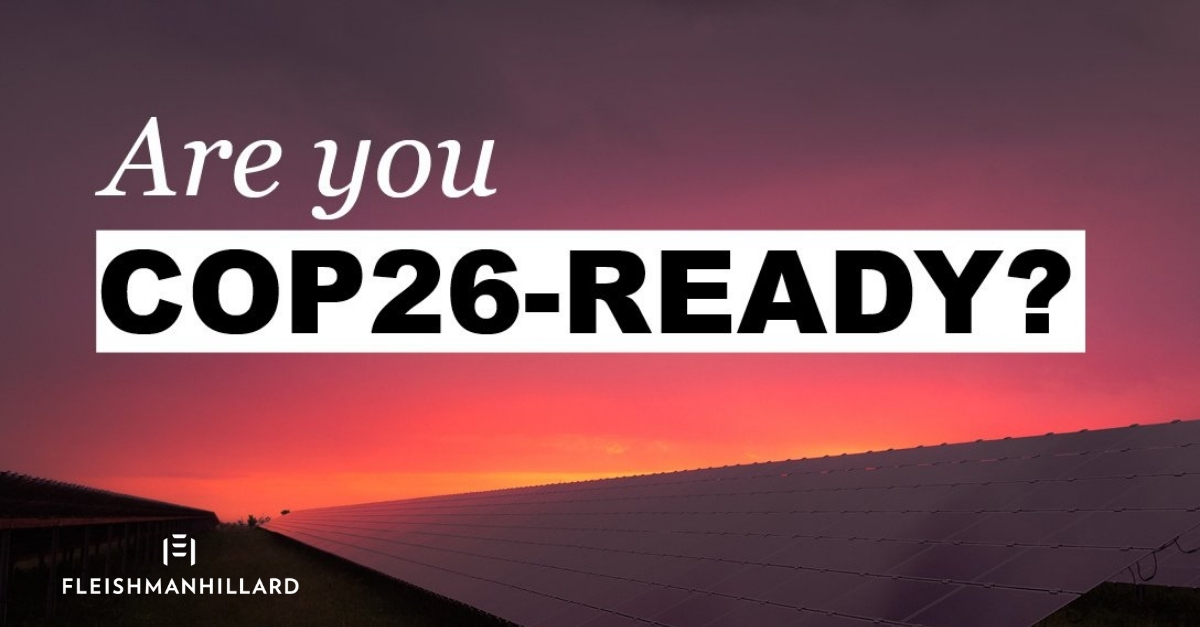Connecting to COP26 – View from New York
COP26 – The view from New York, from Colin Hart, Vice President, FleishmanHillard New York.
IS “GREENWASHING” THE NEW CLIMATE DENIAL IN THE UNITED STATES? | COP26 – The view from New York
“The titans of finance wouldn’t be in Glasgow if they hadn’t been having discussions with their grandkids, nieces and nephews”, said Rachel Kyte, former UN Special Representative for Sustainable Energy for All, this week. But there is also a strong sense that business leaders need to do more than just show up at COP26.
After months of negotiations, the passing of the U.S. infrastructure bill last week remains the largest climate story in the United States. With $50 billion for climate change measures, along with tens of billions more for sustainable infrastructure upgrades, the Biden administration is touting this legislative victory as the foundation for U.S. efforts to combat climate change.
Despite this success, criticism is growing around the U.S. climate agenda and President Biden’s recent calls for OPEC to increase oil production.
Across the pond in Glasgow, the role of the private sector has become a point of attention at COP26. Chief executives from Wall Street and beyond have been participating in this week’s events, often receiving a frosty reception.
U.N. Secretary-General António Guterres called out corporations in his COP26 opening remarks, saying “there is a deficit of credibility and a surplus of confusion” around private-sector climate commitments. Laurence Tubiana – largely recognized as one of the key architects for the 2015 Paris climate agreement – went a step further and said, “greenwashing is the new climate denial.”
These statements were made despite the UN’s Glasgow Financial Alliance for Net Zero, a coalition of the world’s banks, insurers, investors, and financial regulators with assets over $130 trillion, announcing a pledge committing the globe’s financial industry to global emissions targets.
Even with these commitments, corporations all over the world should be prepared for increased criticism of corporate pledges, as well as more naming and shaming in reports and media coverage from activist groups, media outlets, and intergovernmental organizations, including the UN itself.
Beyond “naming and shaming”, government agencies such as the U.S. Securities and Exchange Commission (SEC), are also moving quickly to respond to demands from investors, consumers, and other stakeholders to address the calls for increased disclosures and risk related to ESG.
The days of toothless corporate climate commitments, or pledges with little impact until the distant future, are coming to an end, and companies on Wall Street and beyond are going to start paying – with their reputation and their stock price – for not walking the walk when it comes to combatting climate change.
This ‘Connecting to COP26’ series is brought to you by the FleishmanHillard Cop26 Unit as part of the COP26 Daily Digest. For more information, please contact the FleishmanHillard COP26 team.
Find Out More
-
Achieving Outsized Impact by Building Stronger Country Reputation
February 18, 2025



